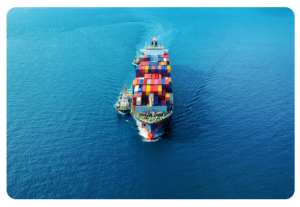Marine insurance is a crucial element for anyone involved in shipping, whether it’s a large corporation transporting goods across oceans or a private individual shipping a personal vehicle.
The unpredictable nature of the sea, coupled with the complexities of international logistics, makes it essential to have a reliable policy. However, the market for marine insurance is vast and navigating it can be challenging.
Choosing the right service provider requires careful consideration of several key factors to ensure your assets are adequately protected. This article will guide you through the most important aspects to evaluate before making a decision.
1. The Provider’s Expertise and Reputation
The foundation of a good marine insurance policy is the provider’s knowledge and reputation. An experienced insurer understands the unique risks associated with different types of cargo, vessels, and routes. Look for a company with a proven track record of handling claims efficiently and fairly.
Read testimonials and case studies to gauge their performance. A reputable provider will not only offer a comprehensive policy but also provide expert advice on risk management and loss prevention. Their expertise can be invaluable in a complex claim situation.
2. Comprehensive Coverage Options
Not all marine insurance policies are created equal. You need to ensure the coverage matches your specific needs. Standard policies may cover basic risks like fire or sinking, but you may require additional protection for risks such as theft, piracy, or damage during loading and unloading.
Consider whether you need an all-risk policy, which covers all perils unless specifically excluded, or a named-perils policy, which only covers the risks explicitly listed. The scope of your marine insurance should be tailored to the value and nature of your cargo.
3. Claim Settlement Process and Responsiveness
When an incident occurs, a swift and smooth claims process is paramount. Investigate the insurer’s claim settlement history. How quickly do they respond to claims? Is their process transparent and easy to follow? Delays in claim settlement can lead to significant financial losses and operational disruptions.
A good provider will have a dedicated team to assist you through the process, from filing the initial report to final payment. Their responsiveness and efficiency are a true test of their service quality.
4. Customization and Flexibility
Your business needs may change over time, and your marine insurance policy should be able to adapt. Look for an insurer who offers flexible and customizable policies. They should be willing to adjust coverage limits, add or remove specific clauses, and accommodate different types of shipments.
This flexibility is particularly important for businesses with a dynamic supply chain or those that handle a variety of goods. A one-size-fits-all policy may leave you over-insured in some areas and dangerously under-insured in others.
5. Cost-Effectiveness and Transparency
The cost of marine insurance is a critical factor, but it should not be the only one. Compare quotes from different providers, but be sure you are comparing similar levels of coverage. A policy with a low premium might have significant exclusions or a high deductible.
Look for transparency in pricing and policy terms. A reputable insurer will clearly explain what is covered, what is excluded, and how the premium is calculated. Avoid providers with hidden fees or ambiguous terms.






